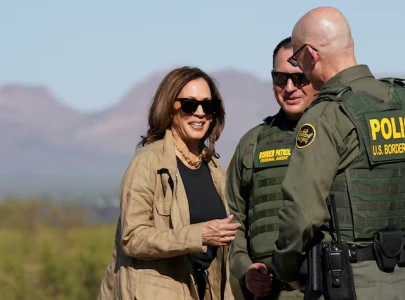
Pakistan suffered immensely from the partition both in terms of men and materials while India enjoyed the illegal occupation of land, money and numerous other sources supposed to be equally divided. Kashmir however has been on fire ever since.
Although Pakistan has come a long way out of such vulnerability, Kashmir remains a longstanding dispute between India and Pakistan. Since independence, the two sides have fought three wars and several border skirmishes, turning Kashmir into a ‘nuclear flashpoint’. The complex Kashmir issue has been lingering on for ages with no immediate signs of a resolution.
It is imperative to note that although the UN Security Council had already passed important resolutions as regards the right to self-determination for the people of Kashmir through a free and impartial plebiscite; and although the earlier Indian leadership agreed to abide by the UNSC resolutions, the world community failed miserably to implement the same when India ruthlessly decided to defy these resolutions.
On August 5, 2019, India under the Hindutva fascist regime revoked the autonomous status of Kashmir by abrogating Articles 370 and Article 35A from the Indian constitution. This meant the end of the Kashmiris autonomous rights followed by demographic changes which further undermines the resolutions. The decision has created unrest in what is now being called Indian Illegally Occupied Jammu and Kashmir (IIOJK). India has increased its military troops in the region which now total 900,000. There has been increased instances of torture, violence and killings as the Indian Army blatantly continues to commit human rights violation while the international community looks on. Religious hatred, discrimination and border skirmishes between India and Pakistan are also on the rise as the situation has led to a number of crises.
Presumably, there are a couple of key reasons as to why India shows such hubris and why the international community, more importantly the US and its allies, are silent on such a longstanding issue. One, both India and Pakistan have stopped talking seriously to each other. Most forms of confidence building measures (CBMs) aimed at a composite dialogue to help resolve all outstanding issues including the core issue of Kashmir are at a standstill. Two, although the US always played a balancing role in South Asia, it is now tilting more towards India than ever before, especially after its withdrawal from Afghanistan, while refocusing to contain China as part of its Indo-Pacific strategy. Three, India has been attempting to integrate many Gulf states economically. It is interesting to note how India is managing its geo-economic and geo-political relations with Israel, Iran and Saudi Arabia despite the rivalry between them.
It is imperative to note that if the Kashmir issue is not resolved, it will continue to have implications for the world, particularly the South Asia region — like, it could create more mistrust between India and Pakistan and spark an arms race in the South Asian region; it could lead to more serious crises which could, in turn, trigger bigger military conflicts leading up to a nuclear war; the UNSC resolutions would further be undermined with faded credibility; India would continue to show despotic hegemony and attempt to escalate its dominance in South Asia; Kashmir would suffer from increased bloodshed and human rights violations, producing, in turn, more freedom fighters and forcing the Kashmiris to continue their untiring struggle for the right of self-determination.
In sum, the following can be some of the plausible ways forward: 1) regular and sustainable talks between India and Pakistan while taking into the confidence the people of Kashmir; 2) taking steps to bring the Kashmir issue in global spotlight; 3) asserting the US to play a mediating role in the longstanding dispute; and 5) urging the key UN players, including the Secretary General, to play their parts for resolution of the Kashmir issue.
Published in The Express Tribune, February 9th, 2022.
Like Opinion & Editorial on Facebook, follow @ETOpEd on Twitter to receive all updates on all our daily pieces.








1727268465-0/Untitled-design-(42)1727268465-0-270x192.webp)





COMMENTS (5)
Comments are moderated and generally will be posted if they are on-topic and not abusive.
For more information, please see our Comments FAQ